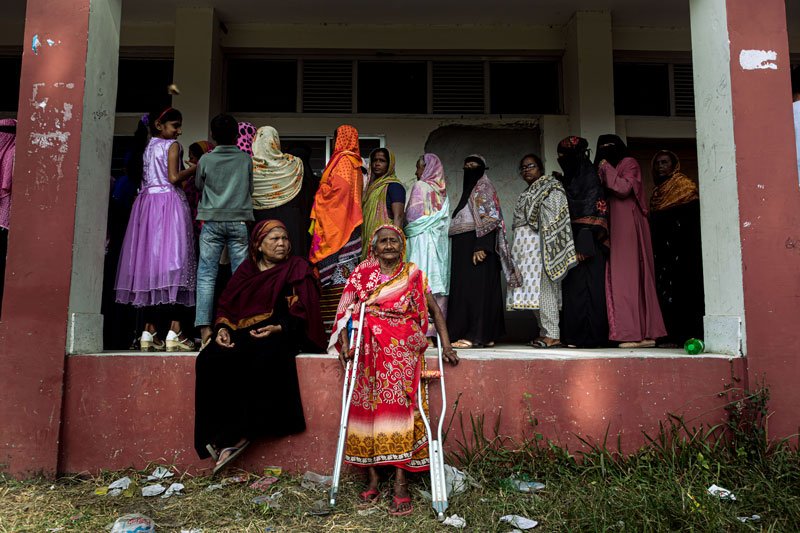The Badruddoza Medical Mandate (BMM) is a leading medical aid initiative by Ibadah Welfare Foundation, in partnership with the Medical College for Women and Hospital (MCWH). It provides free, compassionate care to patients who cannot afford critical treatments, hospital stays, medication, and life-saving surgeries. Inspired by the legacy of Professor AQM Badruddoza Chowdhury, BMM reflects the belief that mercy in healthcare is a form of worship – delivering hope and healing where it’s needed most.
It’s more than treatment – it’s mercy in motion.
Graduating with top honors from Dhaka Medical College in 1955, Dr. Chowdhury pursued further medical training in the UK, earning his MRCP from London, and FRCP from the Royal Colleges of Physicians in Edinburgh and Glasgow. He also obtained a TDD from the University of Wales.
Prof. Chowdhury was deeply committed to public health, serving as President of the National Anti-Tuberculosis Association of Bangladesh (NATAB) and the International Union Against Tuberculosis and Lung Disease (IUATLD) for the Asia-Pacific region. In recognition of his contributions to medical education and healthcare services, he was honored with the highest civil award—the National Independence Award.
He was renowned for organizing free medical camps in rural villages, bringing together multidisciplinary teams to deliver comprehensive healthcare to underserved populations.
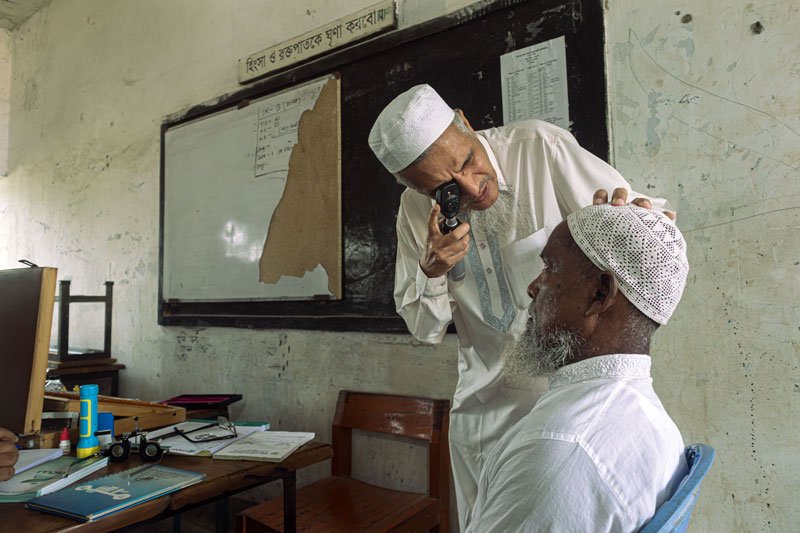
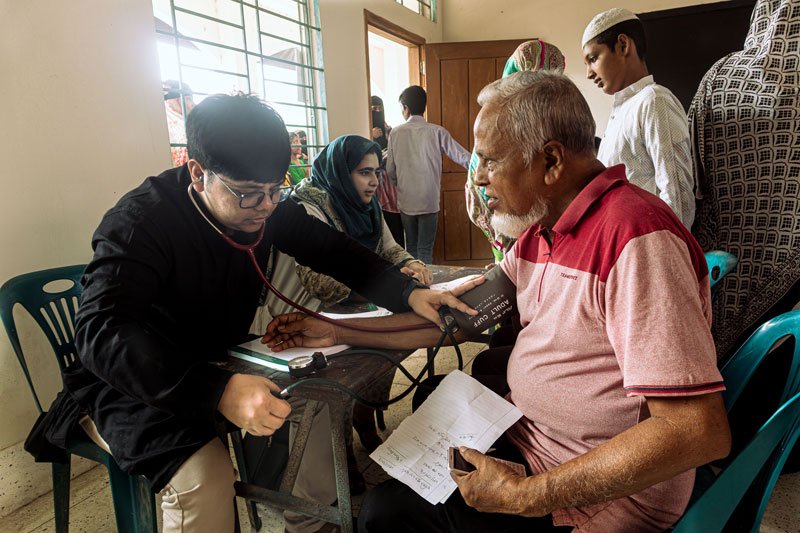
In 1992, driven by this mission, he co-founded Bangladesh’s first women-only medical college: the Medical College for Women and Hospital (MCWH). Not only did he pioneer medical education for female physicians, but he also built a successful, fully non-profit hospital dedicated to serving the poor.
Today, MCWH stands as a beacon of hope, treating 600–1000 patients daily, half of whom live below the poverty line. Recognized by the World Health Organization (WHO), both the college and hospital reflect Dr. Chowdhury’s unwavering belief that healthcare and education should uplift the underserved.
Beyond medicine, Dr. Chowdhury was also a cultural activist, author, and the 16th President of Bangladesh. His multifaceted contributions have left an indelible mark on the nation.
The Badruddoza Medical Mandate (BMM) carries forward this legacy—not merely through words, but through lives transformed. By offering free, critical care to those who cannot afford it, BMM brings Dr. Chowdhury’s vision to life, embodying his belief that compassion in healthcare is a profound act of worship.
At Ibadah Welfare Trust, we are proud to honor his legacy by continuing his mission—to serve humanity with compassion, dignity, and empathy.
A dedicated team of trained social workers identifies patients struggling with healthcare expenses. Each case is personally interviewed, financially assessed, and categorized by need.
Then, based on urgency and affordability, BMM steps in to:
The Badruddoza Medical Mandate (BMM) operates through a structured, compassionate system to ensure that help reaches those who need it most – completely free of cost.
A dedicated team of social workers carefully identifies patients who are unable to afford treatment. Each individual is personally interviewed, financially assessed, and prioritized based on urgency and need.
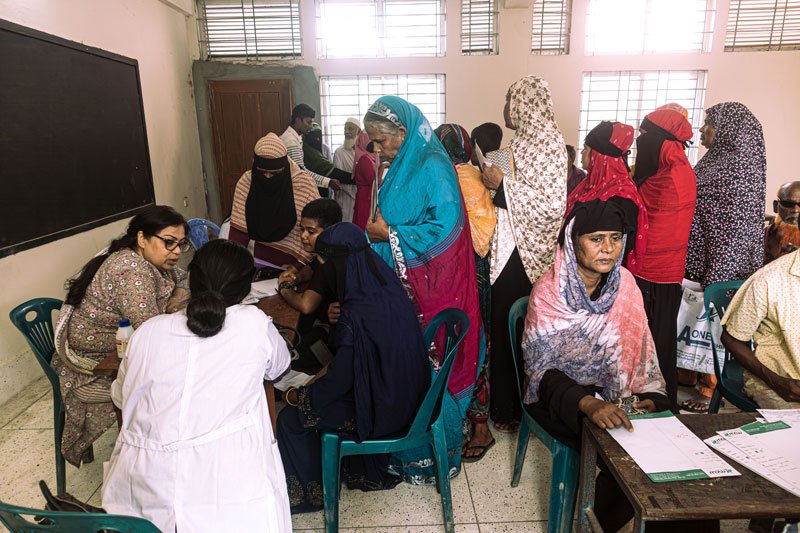
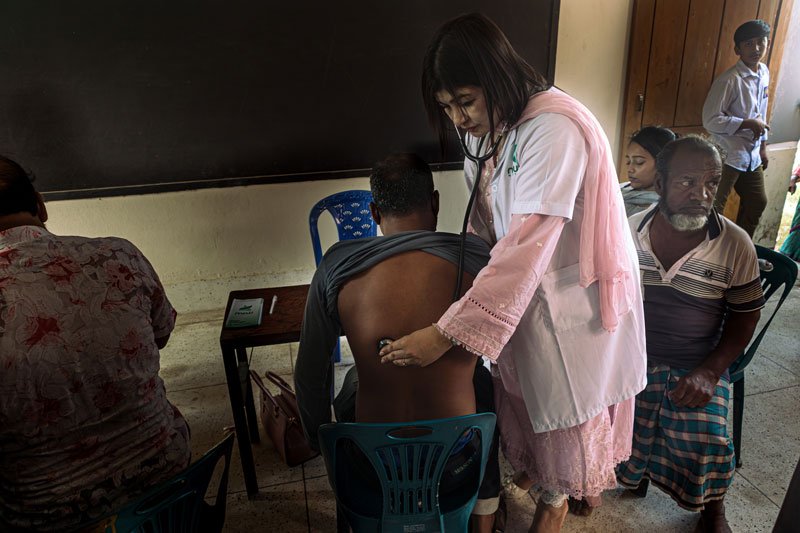
Every day, between 600 – 1000 patients walk thought the doors of the Medical College for Women and Hospital (MCWH). Half of them live below the poverty line, while many others come from struggling lower- and middle-class families – all seeking care they can barely afford.
For these patients, survival often depends on their ability to pay for it and not on the availability of the treatment.
This is where BMM becomes a lifeline – stepping in when finances stand between a patient and the care they need. BMM ensures that critical treatments, surgeries, and hospital stays are never denied due to financial hardship.
This isn’t just medical aid. It’s a mandate of mercy – serving the forgotten with dignity, compassion, and the belief that healthcare is a right, not a privilege. Because no one should ever have to walk away from life-saving care simply because they cannot afford it.
Medical College for Women and Hospital
Plot-4, Road-9, Sector-1,
Uttara Model Town,
Uttara, Dhaka-1230, Bangladesh.
